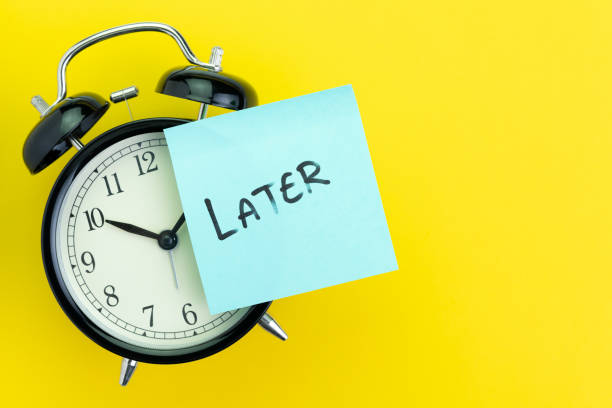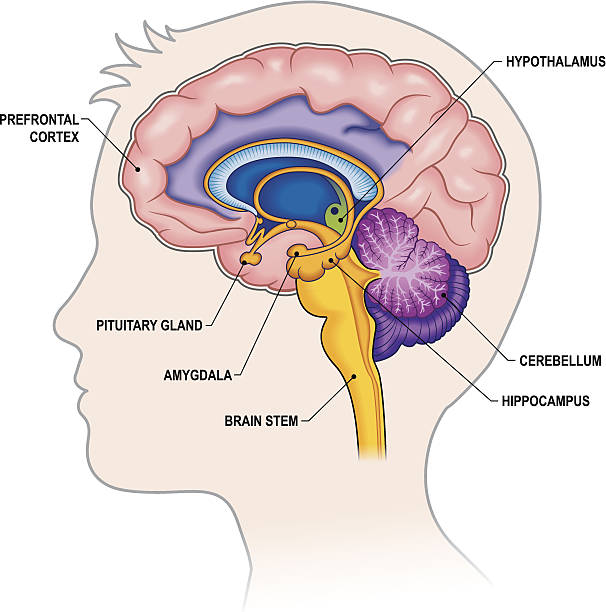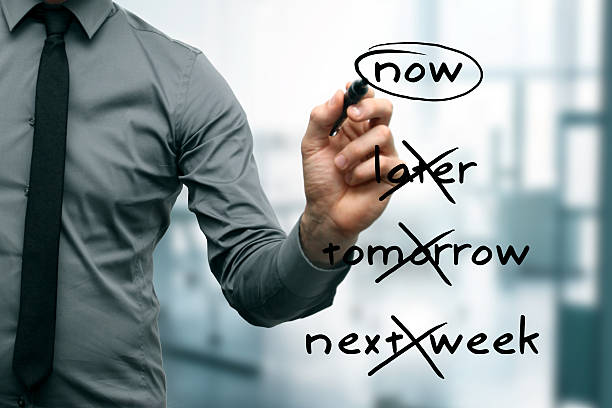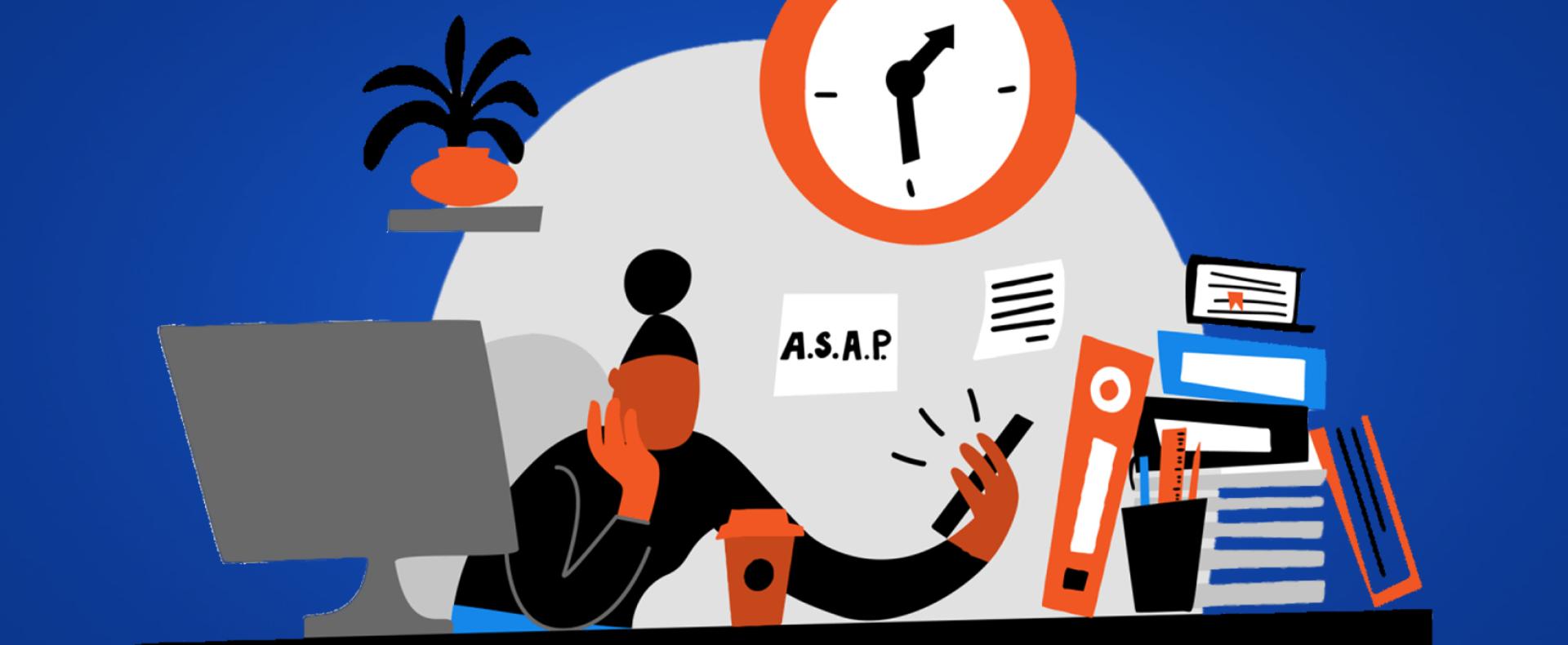Procrastination; you have probably come through this terminology a lot lately.
Almost everyone is complaining about procrastination; including me and I think you are also complaining of procrastination, that is why you are here.
what is procrastination?

Procrastination according to the Oxford Dictionary is; “the act of delaying something that you should do, usually, because you do not want to do it.”
when you procrastinate you don’t necessarily stare at the blank, although you may do.
But, when you do the less important or non-urgent task instead of what you should be doing at the same time.
This is procrastination as well.
How we procrastinate?
With all of these distractions all around us everywhere, we might have a constant feeling of overwhelming when we are actually doing nothing.
It is like, "I’m so busy, so I’m going to spend the limited time I have on video games or scrolling through social media."
This leads us to be more stressed, more overwhelmed, and feeling guilty of procrastination.
We might end up not doing the task at all or not doing it properly. When you give a proper amount of time that is proportionate to the task length and difficulty, you will do it better than doing it in a very short time.
Let's pretend that you have an exam in a week, the amount of information that you will have at the end of the weak would be different if you studied the whole week or most of the time from cramming all the material in one night.
Procrastination affects the quantity and quality of tasks that we procrastinate, so why would we do this to ourselves, putting ourselves in the same shitty situation every single time? Why do we procrastinate?
Procrastination in history

This a long story, as far as we know, the oldest written words refer to procrastination was during the ancient Greek era.
We can find it in the poem of "work and days" by the Greek poet Hesiod, in which he encourages his brother to be more productive not to postpone today’s work till tomorrow.
As we can’t know about something like procrastination unless through the writers’ work.
Funny thing that the greatest procrastinators are writers and artists.
Da Vinci was a procrastinator. But, he did what we name it nowadays productive procrastination.
He worked on engineering and anatomy projects during his time off painting and so he took a long time drawing his paintings although they weren’t difficult for him to complete.
The list does’t stop here. Some so many successful people were procrastinators as Kafka, Virginia wolf, and others.
Why we procrastinate?

We live in a highly distractive world, with all the technology in our hands.
We are so vulnerable to fall into the trap, especially if we work from home.
Because, after all, we all love to be lazy, set on the couch, and watch Netflix all day.
But we gotta make our living and satisfy our inner demons who have great goals that we will achieve, one day but not today, we gonna take today off. we gonna make everything perfect tomorrow which seems to never come.
When we put off a task, One may think to himself; oh I am such a lazy person, I'm a loser, I can't do anything on time and we think that we did something wrong.
It is just who we are as humans we have an ongoing fight between the prefrontal cortex and the limbic system.
The limbic system is the oldest part of our brain and the strongest, while the prefrontal cortex; which is responsible for complex behaviors, planning, and taking decisions; we can say It what differentiates humans from animals and unfortunately, it is the newest in our brain and the weakest.
The strong limbic system is like a monkey that would escape whenever he’s put in an unpleasant situation while the rational prefrontal cortex will go through hard things.
Imagine those two are fighting. That is why the limbic system wins most of the time. That’s why we procrastinate.
We begin to think” oh! I have so much to do” I won't be able to get it all done, I don’t know where to begin from, I can’t work under pressure or I work better under pressure which is completely untrue.
How can we trick our brain to do the work and quit procrastination?

1- Put a plan: put a list of everything you need to get done, then divide it according to its priority then make a schedule and sort all your tasks in it.
2- One step at a time: when you are starting, you need to build momentum to motivate yourself to complete this work so you need to divide your tasks into small chunks which will give you a sense of accomplishment after every task.
3- Do the hard task first: this may be hard, but it is hard anyway. Begin with the most painful task first and then you are done with it and can carry on doing the rest of the tasks.
4- Take breaks: between every 2 tasks set a time for break-in which you can do whatever you want.
5- Work for a short time: don’t set too long working blocks instead set short periods of work separated by small breaks to stay focused and motivated.
6- Reward yourself: whenever you finish a large task or a large part of your tasks, reward yourself with something you like as playing video games, hang out with friends and so.
7- Monitor yourself: try to record where your time goes to know how to manages and fix the leak. Also, monitor the triggers that lead you to procrastinate and avoid them.
8- Exercise: getting a mild amount of exercise and a proper diet will help you stay in a good mood and improve your circulation.
